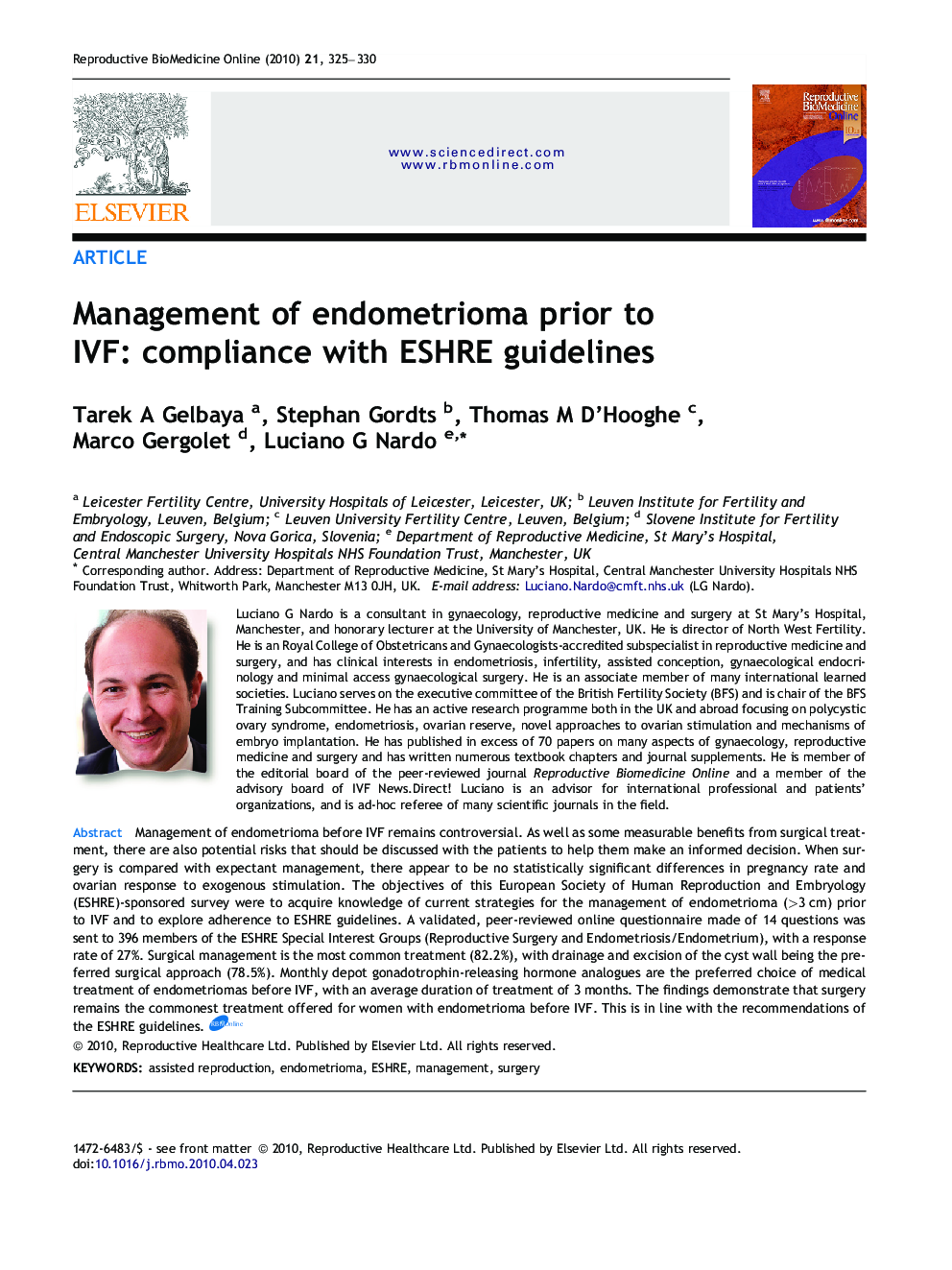| Article ID | Journal | Published Year | Pages | File Type |
|---|---|---|---|---|
| 3971510 | Reproductive BioMedicine Online | 2010 | 6 Pages |
Management of endometrioma before IVF remains controversial. As well as some measurable benefits from surgical treatment, there are also potential risks that should be discussed with the patients to help them make an informed decision. When surgery is compared with expectant management, there appear to be no statistically significant differences in pregnancy rate and ovarian response to exogenous stimulation. The objectives of this European Society of Human Reproduction and Embryology (ESHRE)-sponsored survey were to acquire knowledge of current strategies for the management of endometrioma (>3 cm) prior to IVF and to explore adherence to ESHRE guidelines. A validated, peer-reviewed online questionnaire made of 14 questions was sent to 396 members of the ESHRE Special Interest Groups (Reproductive Surgery and Endometriosis/Endometrium), with a response rate of 27%. Surgical management is the most common treatment (82.2%), with drainage and excision of the cyst wall being the preferred surgical approach (78.5%). Monthly depot gonadotrophin-releasing hormone analogues are the preferred choice of medical treatment of endometriomas before IVF, with an average duration of treatment of 3 months. The findings demonstrate that surgery remains the commonest treatment offered for women with endometrioma before IVF. This is in line with the recommendations of the ESHRE guidelines.
